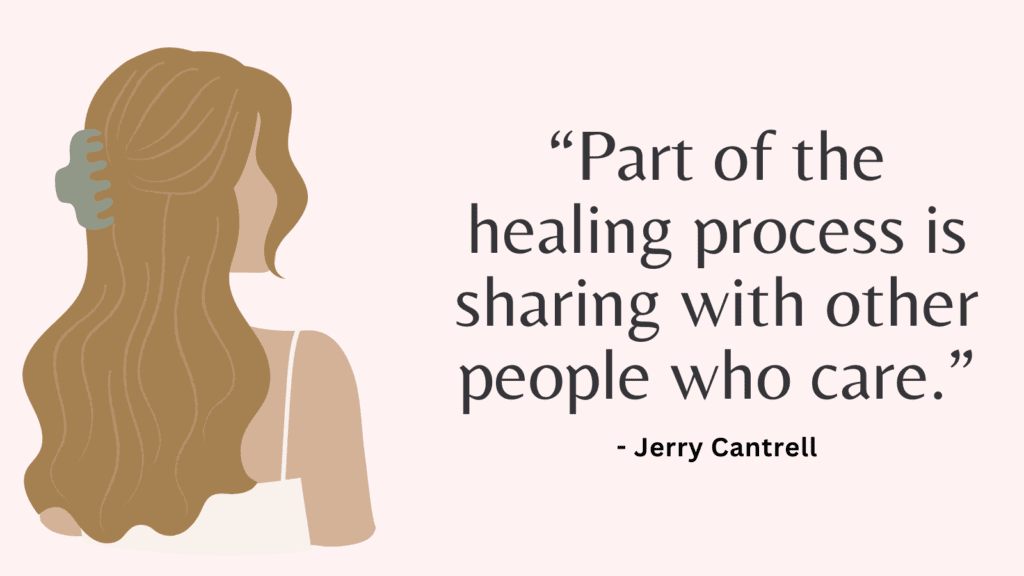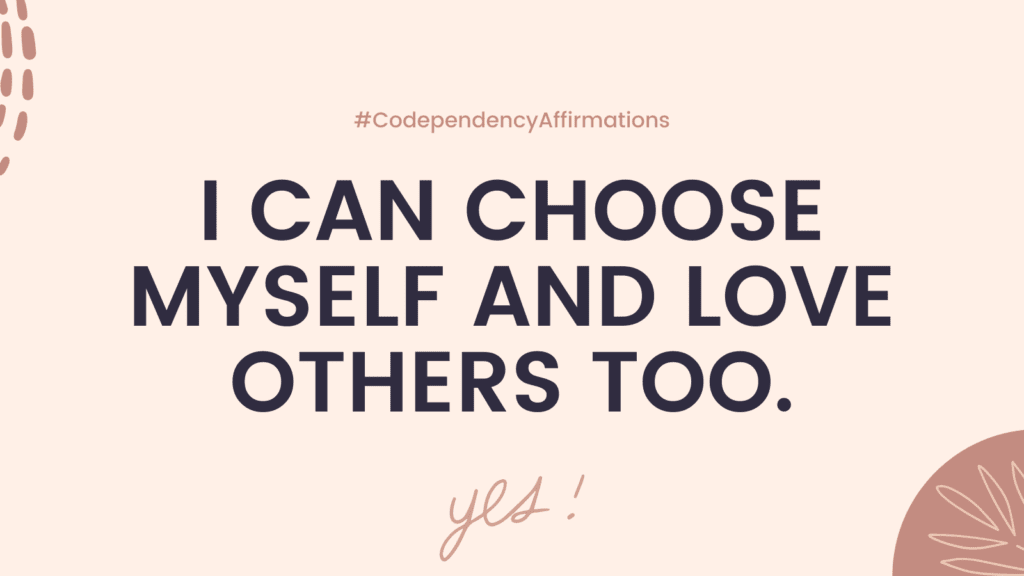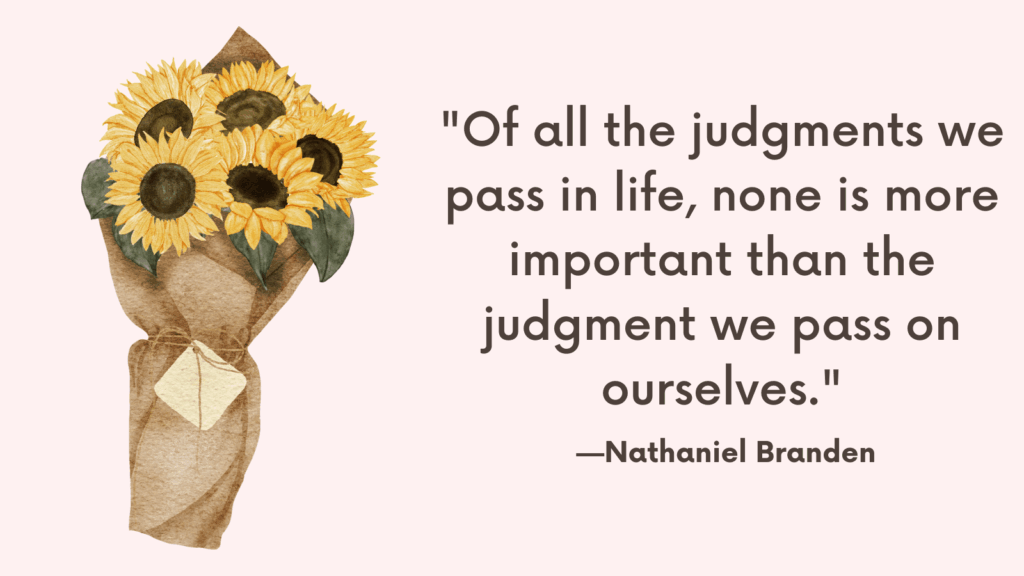In this post, you’ll discover top signs you might be Counterdependent and ways to cope with Counterdependency.
What Is Counterdependency?
Counterdependency is a concept used to describe a pattern of behavior in which a person avoids emotional intimacy and dependence on others.
This can manifest through a tendency to reject or resist help or support from others, an excessive focus on self-reliance, and a disregard for the feelings and needs of others.
Counterdependency often develops as a response to early life experiences that led the individual to believe that they could not rely on others for emotional support or trust them to meet their needs.
It can be challenging for people with counterdependent tendencies to form and maintain close relationships, leading to feelings of loneliness and isolation.
Related: How To Overcome High Functioning Codependency?
What Causes Counterdependency?
Counterdependency can be caused by a variety of factors, including:
1. Trauma or Abuse: Individuals who have experienced trauma or abuse in childhood may develop counterdependent tendencies as a coping mechanism to protect themselves from further harm.
2. Enmeshment: When parents or caregivers are overly involved in a child’s life and do not allow them to develop their own sense of self, the child may develop counterdependent tendencies as a way to rebel against this enmeshment.
3. Family Dynamics: Counterdependency can also be a learned behavior within a family system where independence is valued above all else, leading individuals to prioritize emotional self-sufficiency over emotional connection.
4. Personality Traits: Some personality traits, such as narcissism or avoidance, can contribute to the development of counterdependency.
It is important to note that these factors can interact with each other, and the presence of one factor does not necessarily mean that an individual will develop counterdependency.
Related: Codependency And Enmeshment: 9 Signs You May Be In An Enmeshed Relationship
10 Signs You Might Be Counterdependent
If you exhibit the following signs, you might be counterdependent:
1. You Are extremely self-reliant: You may feel the need to be in control of every situation and may feel uncomfortable or suffocated when someone tries to help you.
2. You avoid asking for help: You find it challenging to ask for help, even from loved ones. You prefer to do everything yourself, even when it is not necessary.
3. You find it difficult to trust others: You may struggle to trust others, viewing others as untrustworthy or unreliable.
4. You have trouble maintaining relationships: You may struggle to maintain long-term relationships because of your inability to be vulnerable and rely on others.
5. You are highly competitive: You tend to view most things as a competition, and you want to win at all costs.
6. You have trouble expressing emotions: You find it challenging to express your feelings openly and may suppress them to appear strong.
7. You feel uncomfortable with intimacy: You may struggle with intimacy and find it difficult to form close bonds with others.
8. You have a fear of abandonment: You may be afraid of being abandoned, but instead of seeking support, you retreat into yourself.
9. You are emotionally detachment: You may appear cold or distant, even in close relationships, due to your fear of dependence on others.
10. You struggle with authority figures: You often struggle with authority figures and may reject their advice or guidance.
If you can relate to several of these signs, you may benefit from seeking help from a mental health professional who can guide you towards developing healthier coping mechanisms.
Related: Take The Echoist Quiz (The Opposite Of A Narcissist)
How to Cope With Counterdependency?
#1. Identify And Acknowledge The Issue
The first step in coping with counterdependency is to identify and acknowledge the issue.
This can be difficult because counterdependent individuals often struggle with vulnerability and rely on their independence as a coping mechanism.
However, recognizing that there may be an issue is an important step towards healing and personal growth.
Here are a few tips for identifying and acknowledging counterdependency:
1. Pay attention to your relationships with others: Are you always the one who avoids emotional intimacy or leans heavily on others for support without reciprocating? Do you find yourself feeling smothered or suffocated in close relationships?
2. Examine your behavior patterns: Do you avoid seeking help or support from others? Do you struggle to express your emotions or tend to shut down when someone wants to talk about feelings?
3. Evaluate your feelings about yourself: Do you feel like you always have to present a certain image to others? Do you struggle with feelings of inadequacy or worthlessness?
Once you have identified potential signs of counterdependency, it’s important to acknowledge and accept them.
Related: Best 20 Tips On How To Let Go Of Perfectionism
#2. Challenge Negative Thought Patterns And Beliefs
Common negative beliefs counterdependents share include:
- “I can’t rely on anyone but myself.”
- “If I show vulnerability, it will be taken advantage of.”
- “Needing help is a sign of weakness.”
- “Others will eventually let me down, so I shouldn’t get too close to them.”
- “I am better off alone.”
- “If I don’t take care of everything myself, it won’t get done right.”
- “Asking for help or support is burdensome to others.”
- “I have to ‘be strong’ and not show any emotions or weakness.”
These beliefs can make it difficult for counterdependents to form healthy relationships and receive the support and care they need from others.
Here are some steps you could follow to do challenge those limiting beliefs:
1. Identify your negative thought patterns: Start by paying attention to the thoughts that accompany your counterdependent behavior. Do you often think you don’t need anyone’s help? Do you feel like you have to be perfect all the time? These thoughts can be a sign of counterdependency.
2. Challenge the thoughts: Once you have identified your negative thought patterns, challenge them by asking yourself questions like:
- Is this thought realistic?
- Is it helping me or hurting me?
- Am I making assumptions about people or situations?
3. Reframe the thoughts: Instead of thinking in negative terms, reframe your thoughts in a more positive and realistic way.
For example, instead of thinking “I don’t need anyone’s help,” try thinking “It’s okay to ask for help when I need it.”
Related: Negative Core Beliefs List (& 8 Tips On How To Challenge Them)
#3. Learn Healthy Communication And Relationship Skills
Learning healthy communication and relationship skills is an essential step in coping with counterdependency.
Here are some tips:
1. Practice active listening: Pay attention to what the other person is saying, ask clarifying questions, and give feedback to ensure that you understand their perspective.
2. Avoid blaming and shaming: Instead of assigning blame or making the other person feel guilty, focus on how you feel and what you need from the relationship.
3. Be assertive: Be clear and direct in your communication, but also respectful and mindful of the other person’s feelings.
#4. Start Setting Healthy Emotional Boundaries
Setting healthy emotional boundaries can help you feel safer as you work on becoming more vulnerable in your relationships.
This means communicating your needs, wants, and limits to others in a clear and respectful manner.
Here are some tips on how to start setting boundaries:
1. Identify what you need: Reflect on what you need from others in order to feel safe, respected, and valued.
2. Communicate your boundaries: Once you know what you need, communicate it clearly and directly to others. Use “I” statements and avoid blaming or accusing language.
3. Be firm and consistent: Stick to your boundaries even if others push back or try to ignore them.
Remember that setting boundaries can be challenging, especially if you are used to putting others’ needs before your own.
But with practice and perseverance, you can develop healthy boundaries that will help you build stronger, more authentic relationships.
Related: Top 25 Tips On How To Set Boundaries In A Toxic Relationship? (+FREE Worksheets PDF)
#5. Cultivate Trust In Relationships
It can be challenging for those struggling with counterdependency to trust others and rely on them for support and validation.
However, building trusting relationships can provide a sense of security and help reduce the need for controlling behavior.
One way to cultivate trust in relationships is to communicate openly and honestly with others.
This involves expressing your feelings and needs without fear of judgment or rejection. It also means actively listening to others and respecting their perspectives.
Remember that cultivating trust in relationships takes time and effort, but the rewards are worth it.
Related: Emotional Intimacy Test (+13 Tips On How To Increase Emotional Intimacy In A Relationship?)
#6. Build a Support System
Counterdependent individuals tend to isolate themselves and have difficulty asking for help or support from others.
However, it is important to recognize that you cannot do everything alone and that having a support system can greatly benefit your overall well-being.
To build a support system, start by identifying people in your life who you trust and feel comfortable confiding in.
This may include family members, friends, coworkers, or a therapist. Spend time nurturing these relationships and fostering deeper connections with these individuals.
Additionally, consider joining support groups or attending therapy sessions specifically geared towards counterdependency.
Surrounding yourself with individuals who share similar experiences and struggles can provide a sense of community and validation.
#7. Embrace Vulnerability
This means acknowledging and accepting that you have needs, desires, and emotions that are entirely valid and important.
It also means being willing to open up and share these feelings with others, even if it feels uncomfortable or scary.
To embrace vulnerability, try the following tips:
1. Start by acknowledging and accepting your own feelings and needs without judgment.
2. Practice expressing your needs and emotions to someone you trust, whether it’s a friend, family member, or therapist.
3. Take small steps towards vulnerability, like opening up about something trivial first before sharing something deeper.
4. Avoid comparing yourself to others or feeling shame around vulnerability.
By embracing vulnerability, you can begin to build deeper connections with others and foster healthier relationships.
It can also help you let go of the need to control everything and allow others to support and care for you.
Related: Feeling Invisible? 3 Steps To Stop Feeling Invisible and Be Seen
#8. Practice Self-Care And Self-Love
Practicing self-care and self-love is essential when coping with counterdependency.
It means taking care of your physical, emotional, and mental well-being, and treating yourself with respect and kindness.
Here are some self-care and self-love practices that can help cope with counterdependency:
1. Take care of your body: Exercise regularly, eat healthy and nutritious food, and get enough rest and sleep.
2. Embrace your emotions: Allow yourself to feel your emotions, express them in a healthy way, and accept them without judgment.
3. Engage in activities that bring you joy and fulfillment: This can be anything from hobbies, sports, spending time with loved ones, or just taking some time for yourself.
4. Practice self-compassion: Be kind to yourself and treat yourself with the same kindness and understanding you would give to a close friend.
By practicing self-care and self-love, you can create a strong foundation for healing and growth.
Related: Top 45 Self Care Day Ideas at Home To Kickstart Your Self Care Ritual
#9. Seek Professional Help
If you are struggling with counterdependency, seeking professional help such as therapy can be beneficial.
A therapist can help you identify thought patterns and provide you with tools to challenge and reframe them.
Conclusion
Counterdependency is a condition where an individual has an excessive need for independence and self-reliance, to the point of avoiding intimacy and connection with others.
Overcoming counterdependency is a process, and it takes time and effort.
Be patient and kind to yourself, and seek support when needed.



